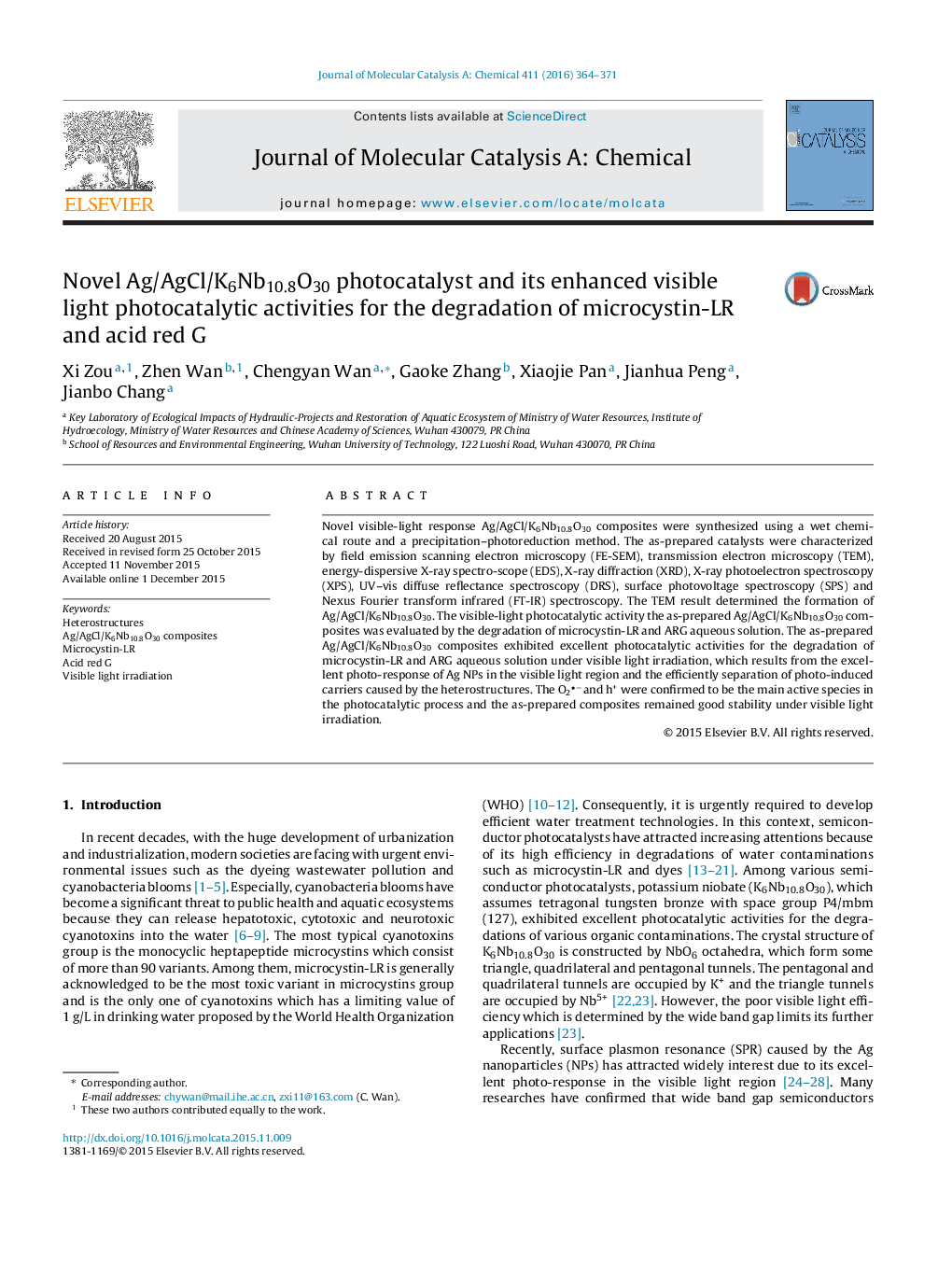| کد مقاله | کد نشریه | سال انتشار | مقاله انگلیسی | نسخه تمام متن |
|---|---|---|---|---|
| 64799 | 48370 | 2016 | 8 صفحه PDF | دانلود رایگان |

• Ag/AgCl/K6Nb10.8O30 samples were prepared via a precipitation–photoreduction method.
• Microcystin-LR and ARG solutions were used to evaluate the photocatalytic activities.
• h+ and O2– are the critical reactive species in the photocatalytic process.
• Heterostructures of composites and SPR of Ag NPs improve the photocatalytic activity.
Novel visible-light response Ag/AgCl/K6Nb10.8O30 composites were synthesized using a wet chemical route and a precipitation–photoreduction method. The as-prepared catalysts were characterized by field emission scanning electron microscopy (FE-SEM), transmission electron microscopy (TEM), energy-dispersive X-ray spectro-scope (EDS), X-ray diffraction (XRD), X-ray photoelectron spectroscopy (XPS), UV–vis diffuse reflectance spectroscopy (DRS), surface photovoltage spectroscopy (SPS) and Nexus Fourier transform infrared (FT-IR) spectroscopy. The TEM result determined the formation of Ag/AgCl/K6Nb10.8O30. The visible-light photocatalytic activity the as-prepared Ag/AgCl/K6Nb10.8O30 composites was evaluated by the degradation of microcystin-LR and ARG aqueous solution. The as-prepared Ag/AgCl/K6Nb10.8O30 composites exhibited excellent photocatalytic activities for the degradation of microcystin-LR and ARG aqueous solution under visible light irradiation, which results from the excellent photo-response of Ag NPs in the visible light region and the efficiently separation of photo-induced carriers caused by the heterostructures. The O2−and h+ were confirmed to be the main active species in the photocatalytic process and the as-prepared composites remained good stability under visible light irradiation.
Figure optionsDownload high-quality image (163 K)Download as PowerPoint slide
Journal: Journal of Molecular Catalysis A: Chemical - Volume 411, January 2016, Pages 364–371